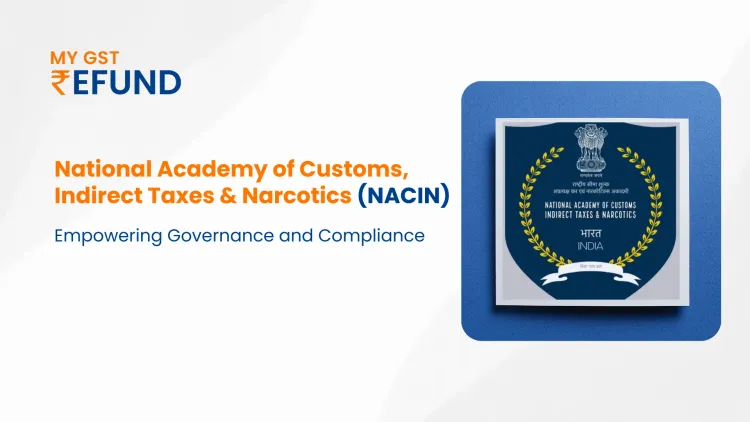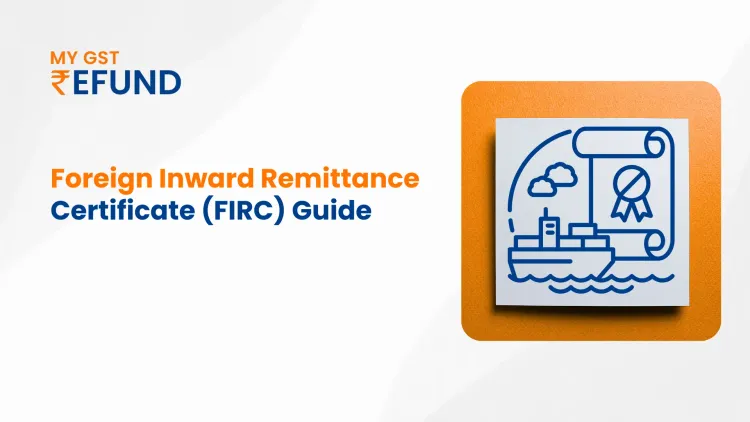GST Return Filing and New Regulations
Published on: Wed Nov 08 2023
Goods and Services Tax (GST) is a comprehensive indirect tax implemented in India on July 1, 2017. It aimed to simplify the tax structure by subsuming various taxes under one umbrella. GST return filing is a critical aspect for businesses to comply with tax regulations. Over time, the regulations have evolved, and understanding the recent changes is crucial for businesses to ensure compliance and smooth operations.
What is GST Return Filing?
GST return filing is the process through which businesses registered under the GST regime report their financial transactions to the government. It involves the submission of various details related to sales, purchases, and tax liability. There are multiple types of GST returns, such as GSTR-1, GSTR-3B, and GSTR-9, each catering to different aspects of business operations.
Importance of GST Return Filing
Filing GST returns is essential for several reasons:
a. Tax Compliance: It ensures that businesses adhere to the tax laws and regulations, avoiding legal complications.
b. Input Tax Credit: Timely and accurate filing allows businesses to claim input tax credits, reducing their tax liability.
c. Government Revenue: It helps the government track tax collections, enabling efficient resource allocation and planning.
Types of GST Returns
There are various types of GST returns, each serving a specific purpose:
a. GSTR-1: Outward supplies return, detailing the sales made by the taxpayer.
b. GSTR-3B: A monthly summary return, used to declare tax liability and claim input tax credit.
c. GSTR-4: Quarterly return for composition dealers.
d. GSTR-9: The annual return, consolidating the entire year's transactions.
e. GSTR-9C: A reconciliation statement that auditors must file along with GSTR-9.
New Regulations in GST Return Filing
The Goods and Services Tax (GST) return filing process has evolved over the years, with several new regulations and changes introduced to simplify the process, increase compliance, and reduce the burden on taxpayers. Here are some of the key new regulations in GST return filing:
1. Simplified Returns: To make GST return filing more straightforward, the government introduced the New Return System. It replaces the complex GSTR-1 and GSTR-3B with simplified forms called Sahaj and Sugam, suitable for small taxpayers. These forms require less detailed information, making it easier for businesses to file their returns.
2. E-Invoicing: E-invoicing is a significant development in GST return filing. It requires businesses to generate invoices on a government portal. E-invoicing helps in real-time data reporting, reduces errors, and ensures the accuracy of input tax credit claims.
3. Late Fee Reduction: To provide relief to taxpayers, the government reduced late fees for filing GSTR-3B and GSTR-1. This reduction in late fees was intended to ease the financial burden on businesses and encourage timely filing.
4. QR Code on B2C Invoices: Businesses with a certain turnover threshold are required to generate a dynamic QR code on B2C (Business to Consumer) invoices. This code facilitates quick and digital verification by tax authorities, aiming to reduce tax evasion and fraud.
5. Annual Return Reconciliation: The GSTR-9C form has been introduced for the reconciliation of annual returns. It is a statement of reconciliation between the audited financial statements and the GST returns filed by the taxpayer. Businesses with a turnover above a certain threshold are required to file this form along with their GSTR-9.
Due Dates and Timelines
The Goods and Services Tax (GST) regime in India has specific due dates and timelines for filing various GST returns. These due dates are determined based on factors like the type of taxpayer, turnover, and the frequency of return filing. It's crucial for businesses to adhere to these deadlines to avoid penalties and maintain compliance. Here are the due dates and timelines for some of the important GST returns:
1. GSTR-3B: This is a monthly summary return, and the due date for filing GSTR-3B is the 20th of the following month. For example, the GSTR-3B for the month of July must be filed by August 20th.
2. GSTR-1: GSTR-1 is the return for reporting outward supplies or sales. The due date for filing GSTR-1 varies based on the turnover of the taxpayer.
For taxpayers with a turnover of up to INR 1.5 crore, the due date is the 11th of the following month.
For taxpayers with a turnover exceeding INR 1.5 crore, the due date is the 10th of the following month.
3. GSTR-4: GSTR-4 is the quarterly return for composition dealers. The due date for GSTR-4 is the 18th of the month following the quarter. For example, for the April-June quarter, the due date is July 18th.
4. GSTR-9 and GSTR-9C: GSTR-9 is the annual return, and GSTR-9C is the reconciliation statement. The due date for both of these returns is December 31st of the following financial year. However, please note that the due date for these returns is subject to change, so it's essential to stay updated with any notifications or circulars issued by the government.
5. GSTR-5 and GSTR-5A: These returns are for non-resident taxpayers and online information and database access or retrieval service providers. The due date for GSTR-5 is the 20th of the following month, while the due date for GSTR-5A is the 20th of the month following the calendar month.
6. GSTR-6: GSTR-6 is for input service distributors. The due date for filing GSTR-6 is the 13th of the following month.
7. GSTR-7: GSTR-7 is the return for tax deducted at source (TDS). The due date for GSTR-7 is the 10th of the following month.
8. GSTR-8: GSTR-8 is the return for e-commerce operators. The due date for GSTR-8 is the 10th of the following month.
9. GSTR-10: GSTR-10 is the final return to be filed by taxpayers who have opted for the composition scheme or are canceling their GST registration. The due date for GSTR-10 is within three months of the date of cancellation or order for cancellation, whichever is later.
It's important to note that due dates may change, and the government often issues notifications with revised timelines.
Penalties for Non-Compliance
Non-compliance with the Goods and Services Tax (GST) regulations in India can result in various penalties, interest charges, and legal consequences. It's crucial for businesses to understand the consequences of non-compliance and take the necessary steps to adhere to the GST rules and guidelines. Here are some of the penalties and repercussions for GST non-compliance:
1. Late Fee for Delayed Return Filing: Late fees apply when businesses do not file their GST returns on time. The late fee is generally INR 50 per day for each return. This means INR 25 for CGST (Central Goods and Services Tax) and INR 25 for SGST (State Goods and Services Tax) per day of delay, with a maximum late fee of INR 5,000.
For GSTR-3B, the late fee is INR 20 per day for CGST and INR 20 for SGST.
2. Interest on Late Payment of Tax: If businesses fail to pay the GST liability on time, they are liable to pay interest on the amount due. The interest rate is usually 18% per annum, calculated on a daily basis from the day after the due date of payment until the actual date of payment.
3. Penalty for Non-Filing: If a taxpayer does not file their GST returns for a specific period, they may face penalties. The penalty can be 10% of the tax amount due, subject to a minimum of INR 10,000. The penalty is 10% of the tax amount due for that particular period.
4. Penalty for Incorrect Return Filing: If a taxpayer provides incorrect information or under-reports their tax liability intentionally or unintentionally, they may face a penalty. The penalty can be up to 100% of the tax amount due.
5. Cancellation of GST Registration: Non-compliance, particularly persistent non-filing of returns or failure to pay tax dues, may lead to the cancellation of a taxpayer's GST registration. This can have severe consequences for the business, as it may not be able to conduct transactions legally under GST
Are you looking for GST Refund Solution? MYGST REFUND offers GST refunds on exporters , business , TCS And TDS refund, Refund under Inverted Duty Structure, GST Notices & Technical Replies and many more if your GST application is rejected. Get in touch with us today.
Related Posts





